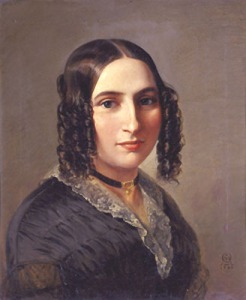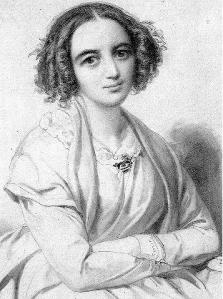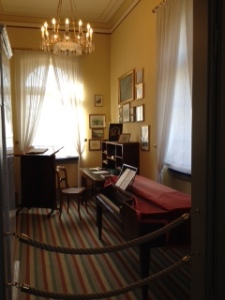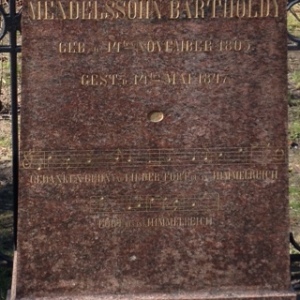Jessie McCabe – this girl did
It took me decades of music making, after years of music education, to reach what I’ve called elsewhere – on Four Thought – my Morecambe and Wise moment (the moment when you ask yourself ‘Why are Eric and Ernie sharing a bed?’ and life is never the same again, there’s no way back to the days of innocence). I suddenly, and belatedly, realised that I had never played, sung or studied a single piece of classical music by a woman, and that I could count on the fingers of one hand the performances I had heard. Actually, one finger of one hand.
And now, here’s Jessie McCabe, aged seventeen, who, with the clarity (and effortless command of social media) of youth, is telling truth to power – specifically calling out the EdExcel exam board on their male-only syllabus.
Suddenly people (or rather people in the media) are talking about the issue, all thanks to Jessie McCabe. Do have a look at this piece by Caroline Criado-Perez in The Independent. She not only asked intelligent questions when she interviewed me, but listened to my answers. And just this morning, I cycled in the pouring rain up to Radio Oxford to do a live interview on the Today programme. You’ll find me and James Naughtie sandwiched between Greg Rutherford and the nine o’ clock news, so it’s all a bit rushed, but for a girl like me who was brought up without television and still doesn’t watch much of it (apart from the cycling), this is nearly as good as it gets. Nearly, because I can still dream of Private Passions on Radio 3…Michael Berkeley, hear my prayer.
As ever, as I cycled back down the Banbury Road, and as I slowly stopped shaking, I thought of all the things I should have said, or said more clearly. I regretted not speaking more about creativity against the odds, or about the hunger out there for women’s music (surely it’s not a coincidence that when Radio 3 listeners were asked which composer should feature in a listeners’ choice special edition of Composer of the Week, they chose Louise Farrenc?) or about how we can change the way we talk about women composers, which happened to be the subject of my most recent post. But most of all, I feel guilty and foolish at having singled out Fanny Hensel as the forgotten composer with most to offer us – but I hope the ghosts of Caccini and Strozzi, of Jacquet de la Guerre and Martines, of Boulanger and Maconchy will forgive me. (Clara Schumann can look after herself…)
This mini media frenzy – I should also mention that this very blog has been featured by WordPress – has slightly overshadowed the more mundane, but nevertheless, to me, thrilling moment when my book moved off my desk and into production. It now has definite publication dates (7 April 2016 in the UK, 12 May in the USA – careful readers will note that 1 April did indeed turn out to be a joke), a beautiful cover, more of which next time, and you can even now pre-order it on amazon. If you use amazon.
But the last word, today at least, should go to Fanny Hensel because, lying behind my appreciation of her exceptional talent as a composer is an appreciation of just how hard-won a victory it was for her to get her music published in the final years of her life, and how short-lived that victory would be.
 The happiness that exudes from Hensel in 1846, four years after this portrait was commissioned by her family (who ensured that it contained absolutely no indication of her musical ability, whether as performer or composer) is infectious and inspiring. Here’s how I write about it, which includes, more importantly, what she has to say about finally moving out from the private to the public world.
The happiness that exudes from Hensel in 1846, four years after this portrait was commissioned by her family (who ensured that it contained absolutely no indication of her musical ability, whether as performer or composer) is infectious and inspiring. Here’s how I write about it, which includes, more importantly, what she has to say about finally moving out from the private to the public world.
when asked by publishers, Hensel compiled a list of her compositions which were still ‘floating around the world concealed.’ Three more collections headed for the presses. The year ended with the writing of a piano trio, conceived (as so many previous works had been) as a birthday present for a family member, in this case, her sister Rebecka. The Trio’s first movement begins in suppressed tension, and builds to a powerful close. The second movement runs seamlessly into the third, which is marked Lied, linking it clearly with Hensel’s earlier ‘Songs for piano.’ The writing for the piano is fascinating, giving great freedom to the performer whose part, in the final movement is marked ad libitum. As an album note puts it, the music ‘drives to a grand climax as the strings, once again set two octaves apart, soar high above the tremolandi piano, and the trio powers its way to a resounding close in D major.’ In her diary, in May 1846, Fanny Hensel wrote ‘I feel as if newly born.’
She was only too well aware how long this moment had taken to arrive: ‘I cannot deny that the joy in publishing my music has also elevated my positive mood. So far, touch wood, I have not had unpleasant experiences, and it is truly stimulating to experience this type of success first at an age by which it has usually ended for women, if indeed they ever experience it.’
The wonder is heightened by a sense of the time that has passed: ‘To be sure, when I consider that 10 years ago I thought it too late and now is the latest possible time, the situation seems rather ridiculous, as does my long-standing outrage at the idea of starting opus 1 in my old age.’ Fanny is, of course, being ironic about her ‘old age.’ She was only forty, and feeling good on it, noting in August 1846 that ‘the indescribable feeling of well-being, which I have had this entire summer, still continues.’









